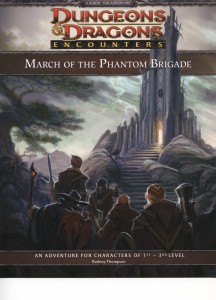After a long and busy week, Friday is finally here. What better way to relax than putting together a D&D list. It started simply enough, just a list of tips for players. That’s when I realized that buried within the 600+ articles we have at Dungeon’s Master are more than enough tips for any D&D player.
Presented below are 11 articles that I enjoyed re-reading and think you will too. When I put together this list together my only criteria was to find interesting article that would appeal to a wide gaming audience. I wasn’t looking for our greatest hits (although a couple included below have already earned that distinction). These articles are a great place to begin a conversation about various aspects of the great game we call Dungeons & Dragons.




